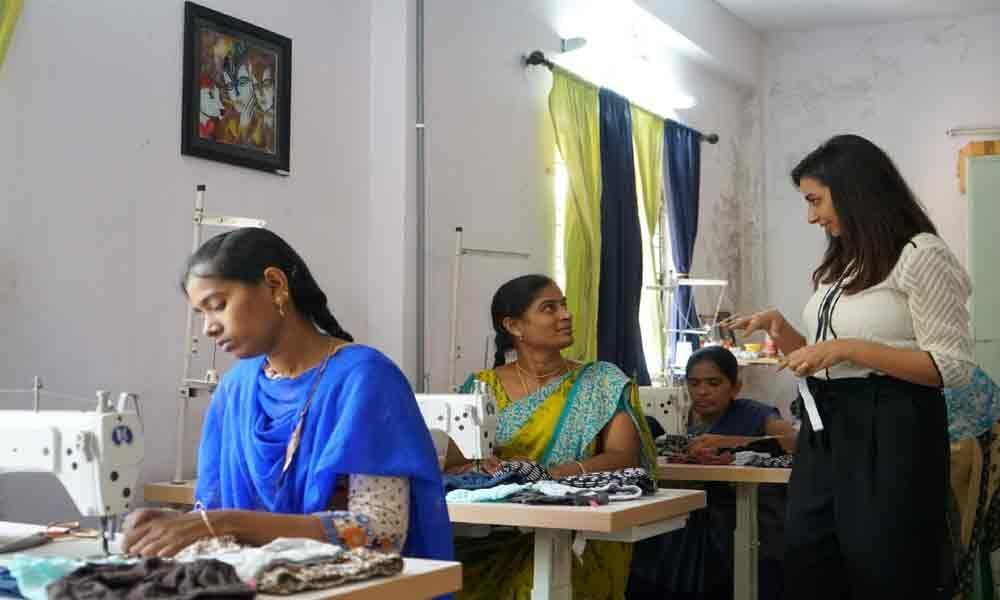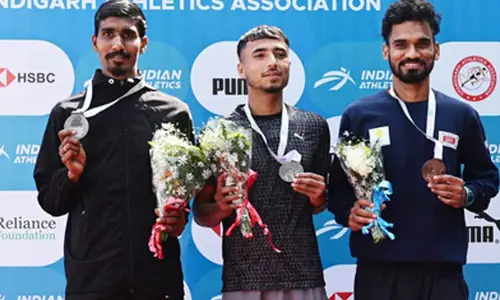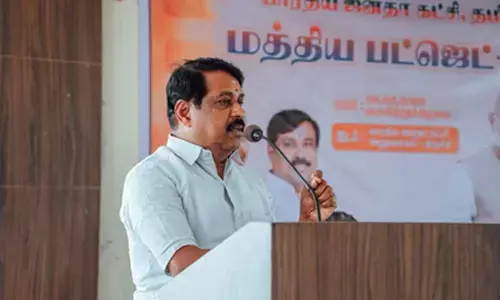It's all about the basic necessity
 It’s all about the basic necessity
It’s all about the basic necessityShweta Tiwari hails from Madhya Pradesh and spent most of her childhood in Hyderabad. After graduating in Agri Sciences, she did her MBA from Pune and completed executive education from ISB, before joining Bayer in the Crop Sciences division.
The inspiration to create a project that works towards providing clean underwear to underprivileged girls came to her in 2017 while volunteering at AshrayAkruthi, a local non-profit organization-serving people in need in Hyderabad. She says, "While I was sorting clothes for distribution, I realised that underwear was the most under-donated and most needed item of clothing. I could not imagine what it would be like to go without this necessity or having to make the choice between putting a meal on the table and buying new underwear."
"Simply donating undergarments was not an effective solution and we wanted to make it more sustainable and economical in nature. The project 'pink speak' ('Pink' symbolizes feminity and 'speak' is for hearing-impaired kids) is aimed at providing good quality cotton undergarments to the girl children in aanganwadis and government Schools.
The project's mission is to provide new underwear to girl children. No one should be deprived of the simple, daily necessity of clean underwear that many of us take for granted. Hygiene and physical comfort are part of basic human need. New, clean underwear also provides dignity and self-esteem," She adds.
The project is also a part of Bayer's Volunteering Programme 2018, and it was Shweta, who won a grant for her project under the programme. About the challenges she continues to face, she says, "Radha who is a chirpy thirteen-year-old studying in a government village school. When asked about undergarments she blushed and was shy saying 'We don't talk about it at all!' Breaking the taboo remains the biggest challenge.
Breaking the taboo and shame starts with the right to information and knowledge and the ability of women and girls to talk freely about feminine hygiene without fear or shame, but with confidence and pride. India is 12 years behind in attaining its sanitation goals and the situation gets worse with every year of delay. We are losing more children due to illness, neglecting more girls, and wasting productive lives."
"Imagine having to choose between feeding your family or providing them with new, clean undergarment. It is unimaginable isn't it? Women's hygiene in India has always been a topic that has been underrated and hearsay. Around 70 per cent of all reproductive diseases in India are caused by poor basic hygiene and women continue to put their health, livelihood and dignity at risk.
In India, some women are living in such poor conditions that they only have access to a single pair of underwear, or sometimes none at all. Most of the underprivileged kids do not wear undergarments to school. These girls being in their teens wear an undergarment only when they have their periods, which is borrowed from a family member or shared amongst women in the house."









